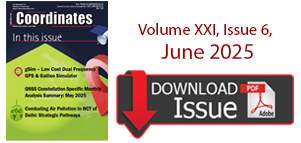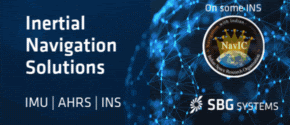| Interviews | |
License required to operate GPS in India
|
|
|||||||
What is the mandate and role of WPC, Ministry of Communications and IT?The Wireless Planning and Coordination (WPC) Wing of the Ministry of Communications and IT, created in 1952, is the national radio regulatory authority responsible for frequency spectrum management, including wireless licensing and caters for the needs of all wireless users in the country, government or private, security or non-security. It is also the national nodal agency for all matters related to International Telecommunication Union (ITU) and the Asia Pacific Telecommunity (APT) and is responsible for treaty obligations on behalf of the Government of India. It also exercises the statutory functions of the Central Government and issues licenses to establish, maintain and operate wireless stations as well as possess, develop and deal in wireless equipment in the country. What is the basic approach the WPC to fulfil its mandate?The Radio Frequency Spectrum and associated geostationary and other satellite orbits are limited natural resources. Radio waves are international in character. Since they cannot be confined to national boundaries hence are more susceptible to harmful interference. Like any other natural resource, it cannot be owned but can only be shared amongst various countries, users, technologies etc. Assignment of frequencies is governed by international treaties formulated under the aegis of the ITU, which are signed and ratified by Government of India. Further, it is also subject to various other international agreements with other countries. The trend of modern telecommunications is towards mobility with ever increasing data rates. Even fixed services are using wireless technologies. This has increased the pressure on already scarce spectrum. Hence, there is a need for increase sharing and re-use of all frequencies. Is it true that one needs a license from WPC before using a GPS?Yes, it is true. If we go strictly by rule that exists on paper, making a GPS operational without a license from WPC is not allowed. However, the government is always alive to the practical situations and requirements. For example, the cordless phones were exempted from licensing requirements with specified frequencies and RF power. Is there a licensing requirement for the use of GPS for Real Time Kinematic (RTK) Survey?When it comes to use of radio frequency, there is a need of license to be obtained. There are welldefined guidelines regarding this. Such licenses also need to be renewed annually or bi-annually. An applicant is expected to follow the rules and regulations stipulated by the Government of India. How much time does it take to get a license from WPC?Generally, it takes from four to six months. For government agencies, it takes lesser time. Our department is also too hard pressed on human resources as there has been a quantum leap in the telecom segment, especially the mobile phone companies. Just to cite an example, about 7 years back the revenue of WPC through license fee and spectrum charges was about Rs 250 million which has gone more than 40 times last year. Can anything be done to reduce this timeframe?The functions of WPC Wing are being made automatic and on-line. This should improve the situation. However, in many cases the decision is not taken by the WPC alone, hence it is bound to take some time. What is the rationale behind the licensing policy?The policy is not without rationale. It is important to avoid the harmful interference with other users and agencies. Is there any mechanism available to monitor the misuse of frequency spectrum?The Wireless Monitoring Organisation (WMO), with headquarters in New Delhi, is the field organisation of WPC Wing for radio monitoring. It monitors the radio spectrum to ensure its harmonious use. It has monitoring stations of varying capabilities and coverage at 22 locations, including one satellite monitoring facility. Certain instances of misuse need not necessarily mean that the law itself is irrelevant. Don’t you think that such licensing has outlived its utility? And that too under the Telegraph Act of 1885. Isn’t that too old?As a regulatory authority, we have to follow the rules. Also, ITA 1885 may appear to be old, but it is a beautiful piece of law, which covers all forms of telecommunications and has permitted privatization and competition whenever required. Licenses are generally associated with undesirable hassles like corruption and laid back beauracracy. Please comment.We try our best to be free from undesirable elements and practices. There are clear guidelines and we follow them while issuing license.In WPC, we are committed to policy of transparency, efficiency and timely response to users. Hence, we are in the process of automation where the provisions will be from online submission of application forms to the monitoring of status of any application. We are creating a computerized database for this purpose. This effort is time consuming as it is important that quality of information is not compromised and data is appropriately validated. Any initiative to help the growth of positioning and navigation technologies?On the part of the WPC, we would like to support the growth of positioning and navigation technologies. We request the users to abide by the law of the land and on our part we are committed that the genuine requirements of the users would be looked into with an open mind.
|
|||||||

 Mr. P. K. Garg Wireless Adviser to the Government of India, has 35 years of experience in various aspects of radio frequency spectrum management and radio communications.He heads the Wireless Planning & Coordination (WPC) Wing of the Ministry of Communications & IT, which is the national spectrum management agency in India.
Mr. P. K. Garg Wireless Adviser to the Government of India, has 35 years of experience in various aspects of radio frequency spectrum management and radio communications.He heads the Wireless Planning & Coordination (WPC) Wing of the Ministry of Communications & IT, which is the national spectrum management agency in India.











 (3 votes, average: 3.33 out of 5)
(3 votes, average: 3.33 out of 5)




